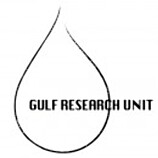
Archive: Gulf Research Blog
Blog articles from 2009 to 2012. The Gulf Research Unit is research programme based at the University of Oslo.
Peace or war in the triangle of Israel, Iran and Saudi Arabia?
Denne artikkelen er over ti år gammel og kan inneholde utdatert informasjon.
By: Torgeir E. Fjærtoft
The US is the outside force that weighs most heavily in the power equations of Israel, Iran and Saudi Arabia. US policy is currently mainly driven by concerns about the Iranian nuclear program. Towards Iran US policy will, in the absence of a trust-building agreement, be based on the assumption that the goal of Iran’s nuclear program is nuclear arms, despite remaining uncertainties and Iranian claims to the contrary. A further US assumption is probably that without a solution acceptable also to Israel and Saudi Arabia, stability in the region, the overriding US policy goal, will not be possible and war hard to prevent.
Two recent US policy moves may appear contradictory: The Obama administration has – after hesitation dating back to the Bush Administration – authorized the transfer to Israel of fifty five sophisticated bombs designed for penetrating underground targets, such as the Iranian nuclear installations. At the same time the top US military commander, Admiral Mullen, has frequently warned against any war scenario with Iran, and is now probably behind the initiative for a hotline with Iran’s naval command to avoid inadvertent clashes in the Gulf between Iranian naval vessels and the US fleet headquartered in Bahrain, sharing narrow and crowed shipping lanes.
Are these US policy moves incompatible, pulling in opposite directions? Yes and no.
First of all, the US is not a monolithic entity. As in Israel and Saudi Arabia, there are factions that urge military attack against Iranian nuclear installations. These factions are oblivious to or underrate the high risk of escalation by dangerous Iranian counter attacks, a risk severely aggravated by the decentralized Iranian military command and parallel structure of the Revolutionary Guard, fragmenting Iranian control in crisis. The easiest target for Iran’s attacks, closing the Strait of Hormus, would potentially have the most catastrophic consequences world-wide by closing off an estimated 40% of the world’s oil supply. A sober look at reality should show beyond doubt that none of the four countries – nor the rest of the world, for that matter – can escape an extreme vulnerability in any war scenario – or in the unpredictable, potentially chaotic and destabilizing aftermath. Therefore, war should appear highly inadvisable as a policy option in any conceivable set of circumstances.
The problem is that not everybody sees it that way. The US President is not omnipotent in the US political system, but must compromise, necessarily resulting in occasional incoherent policies. So when agreeing to provide Israel with offensive weapons against Iran, did President Obama against his better judgement succumb to pressure from the advocates of military action to enhance Israel’s capacity to strike Iranian nuclear installations? No, not likely.
President Obama is known to approach decisions in a highly analytic manner. In these two political moves, the following reading of his mind is likely: He fully endorses his top military commander’s rejection of war as a policy option and shares the concern to avoid military confrontation by accident and misunderstanding. But at the same time he is convinced that adding Iran to Pakistan as nuclear armed trouble spots in the region would be unacceptable. In his view, nuclear arms serve no sensible purpose, not for anybody. Therefore, nuclear arms would not make Iran more secure, only severely boost tensions, create the risk of Israeli panicked pre-emptive attacks, and most likely provoke a nuclear arms race in the region. By arming Israel with weapons that conceivably could destroy the Iranian underground nuclear installations, he intends to put pressure on Iran to negotiate. He trusts that influential circles in Iran realize that in the event of diplomatic failure, military action may become difficult to avoid, irrespective of risks and consequences. If President Obama is seen to fail in a peaceful solution with Iran, his opponents in the upcoming election will use it against him. By failing to compromise now, Iran may come to face a new US President who, like influential circles in Israel and Saudi Arabia, sees war as the only option left, an option to be exercised urgently in the perceived window- of-opportunity until Iran is fully nuclear armed.
This window-of-opportunity argument for attack is of course politically self-defeating, inadvertently providing a rational argument for Iran’s leadership to acquire a nuclear deterrent, thus providing a lever for those in the domestic Iranian power struggle seeking to undercut any rival that may agree to a compromise. Realizing this, President Obama’s exceedingly difficult strategy is to create pressure to compromise while reassuring that attack is neither intended nor imminent. With his second term uncertain, as an astute politician Obama probably sees the rest of his first term as the window-of-opportunity for negotiations, and hopes to convince Iran of the same by demonstrably making the option of Israeli attack more militarily credible.






